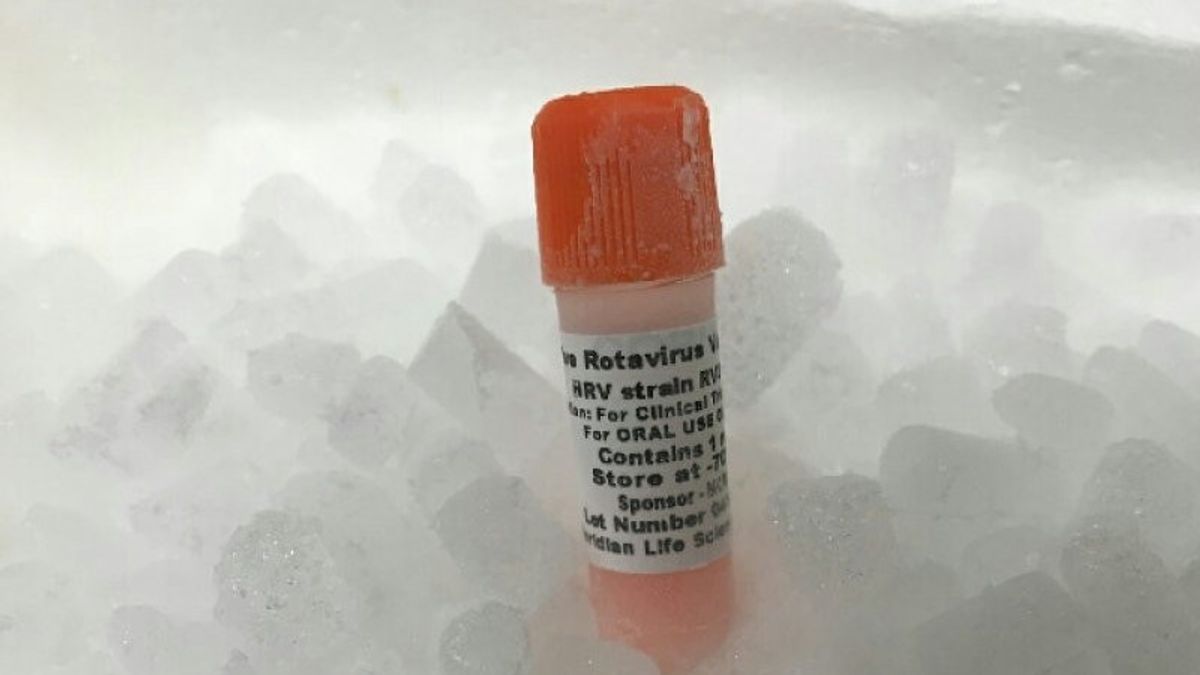JAKARTA - The Indonesian Pediatrician Association (IDAI) reminded that babies who receive Rotavirus immunization are not in a state of full stomach because they have the potential to vomit.
"The baby's stomach is full of money and has the potential to vomit when given the immunization of the Rotavirus," said IDAI General Chair dr. Piprim Basarah Yanuarso was reported by ANTARA, Monday, August 14.
The beginning of the Rotavirus immunization kickoff was held at the Garuda RPTRA, Cilangkap, Cipayung District, East Jakarta, on Tuesday (15/8).
Even though the baby vomited, giving the rotavirus vaccine did not need to be repeated because it was attached to mukosa (cuscouce).
Therefore, he appealed to mothers to give the baby's stomach an immunization of the Rotavirus empty or one or two hours after being given breast milk (ASI).
"Then, breast milk was only given about 10-15 minutes after the baby was immunized," he said.
According to him, giving Rotavirus immunizations to babies aged two months, three months and four months can prevent acute diarrhea that can result in death.
"Early protection for babies is needed so that they are not exposed to acute diarrhea caused by the rotavirus virus," said Piprim.
He said, based on WHO's 2020 research, the biggest cause of diarrhea is rotavirus. This rotavirus says babies are severely dehydrated that are difficult to overcome if they are not taken to the hospital.
The preventive ratavirus in addition to vaccination is also cleanliness (clean drinking water), healthy clean living behavior (PHBS), breast milk, strong nutrition, and high nutrition (avoidingjunk food).
"This is a recommendation of various global organizations. In Indonesia, it can be obtained free of charge at the puskesmas starting tomorrow. So it is hoped that the entire community can use it well," said Piprim.
He mentioned symptoms of rotavirus infection can be caused by asymptomatics and severe dehydration. Severe dehydration can occur in babies aged 6-24 months.
"That's why the vaccination is boosted at an early age so that there is no severe dehydration in larger patients. The pattern of infection, fever, vomiting, discharge, and stomach pain," he explained.
SEE ALSO:
There are several steps in babies that are affected by diarrhea, namely replacing missing body fluids by providing orals.
"However, in this case the rotavirus cannot be given oral liquid because it will vomit. Usually it is given an IV," he said.
Then, given zinc, breastfeeding and giving antibiotics (for cases caused by bacteria).
"Giving antibiotics without indications, is often given to cases of diarrhea. We must know that cases of diarrhea in children are mostly due to viruses, so there is no need for antibiotics. So be careful to give antibiotics to cases of diarrhea," said Primpim.
The English, Chinese, Japanese, Arabic, and French versions are automatically generated by the AI. So there may still be inaccuracies in translating, please always see Indonesian as our main language. (system supported by DigitalSiber.id)



















